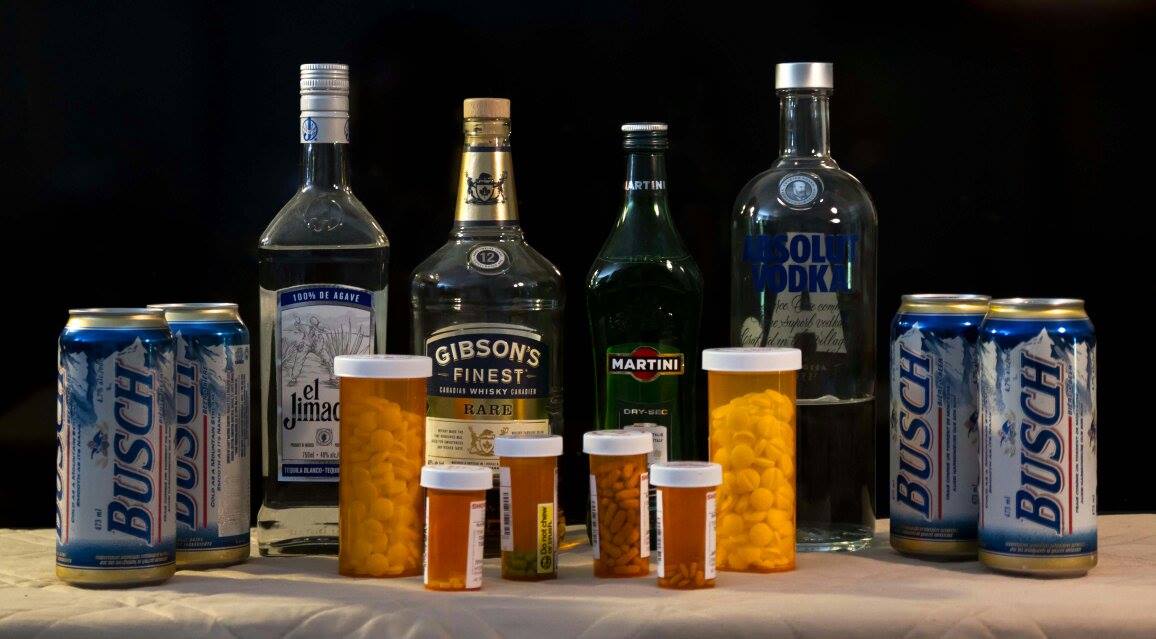Insulin and Alcohol Interaction

Insulin and Alcohol
Insulin is the generic name for the drug which is sold under the brand names Humilin R, Novolin R, Novolin R Innolet, Novolin R PenFill, ReliOn/Novolin R.
Insulin is a hormone that is produced in the body and works by lowering the levels of glucose in the blood. These drugs are a short acting form of insulin.
When using Insulin it is suggested that you not drink alcohol as the alcohol may cause your blood sugar to dip too low and increase the side effects of the drug.
At this time the medical community defines moderate consumption of alcohol as no more than two drinks per day and no more than 14 drinks per week. Anything more than that is considered an unhealthy dependency on alcohol that may have adverse social, family and health consequences.
If a person drinks only once or twice a week but drinks on the same days each week and more than two drinks this is considered as an alcohol dependency.
If a person binge drinks at any time during the week this is also considered as alcoholism.
Some consider alcoholism as a disease while others consider it an addiction which is the result of personal choice and character fault. This school of thought blames the alcoholism on life style choices.
Personally I consider alcoholism a genetic tendency as I have seen families of alcoholics even when they live far apart. These unfortunate people are probably dependent on alcohol from the first drink.
When alcohol interacts with prescription over the counter drugs it usually results in negative health effects most especially liver damage as the main organ affected.
It is suggested that before taking this or any other drug you have a frank and honest discussion with your physician as to your drinking habits. This may be difficult as many alcoholics are in a state of denial as to their drinking habits.
I have also noticed that many alcoholics are not subject to the morning after illness that most of us suffer through when we drink too much. Severe alcoholics usually find if they feel “shakey” in the morning, a drink will make them feel more normal.
Advise your physician if you are allergic to this drug or any other drug or substance, if you are pregnant, plan to be so or are breast feeding.
The medication is only part of a complete program of treatment that may also include diet, exercise, weight control, foot care, eye care, dental care, and regularly testing your blood sugar. Follow your diet, medication and exercise routines as any of these factors can change your blood sugar levels.
Side Effects
Ensure that your blood sugar does not get too low as hypoglycaemia can occur if you skip a meal, exercise too long, drink alcohol or are under stress. Symptoms are headache, hunger, weakness, sweating tremors, irritability or trouble concentrating. It is suggested that you carry hard candy or sugar tablets with you in case low blood sugar occurs. Ensure that your family and friends know you are diabetic and know emergency procedures.
Ensure that your blood sugar does not get too low as hyperglycemia can occur. Symptoms are increased thirst, increased urination, hunger, dry mouth, fruity breath odour, drowsiness, dry skin, blurred vision and weight loss. Your blood sugar needs to be checked often and your insulin dose may have to be adjusted from time to time.
This site serves as an information source only and does not dispense medical advice or any other kind of advice. If you are seeking medical advice you are advised to consult your own physician.
Insulin and alcohol Insulin and alcohol
Return from Insulin and Alcohol to home page
Hard copy and E book for sale. What's Killing You and What You Can Do About It. Click here.
Hard copy and E book for sale. Introduction to Building Mechanical Systems. Click here.